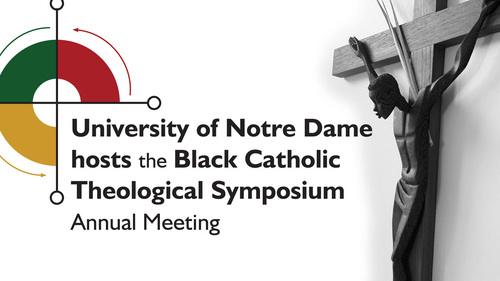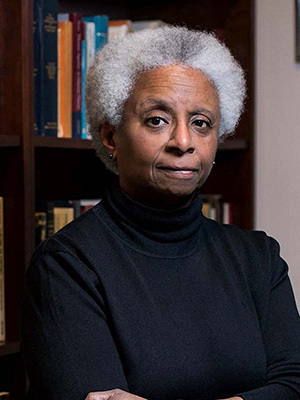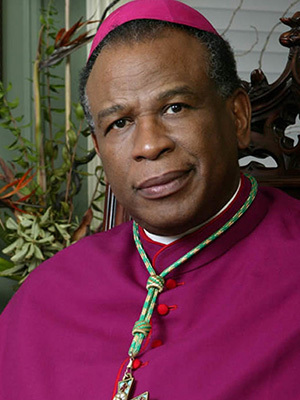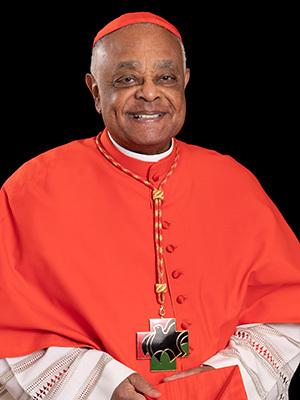
The University of Notre Dame will host the 31st annual meeting of the Black Catholic Theological Symposium on Oct. 7-9, featuring two public lectures and an inculturated Mass led by Cardinal Wilton Gregory, archbishop of Washington, D.C.
Sponsored by the University’s Department of Africana Studies and Department of Theology, the event also includes two days of private meetings for symposium members and an invitation-only listening session for Black Catholic students, community members, faculty and staff.

The Black Catholic Theological Symposium, founded in 1978, seeks to foster an ethical community of scholarly dialogue characterized by a commitment to the fundamental humanity of all people; a regard for plurality of cultural, ethnic and religious backgrounds; and the development of an authentically Black and Catholic theology.
The annual meeting shines a light on this often overlooked segment of the Catholic community, said Rev. Paulinus Odozor, C.S.Sp., a professor of Africana studies and theology and member of the symposium.
“This is an exciting opportunity to celebrate and to engage academically with the Black Catholic Church in the United States,” Father Odozor said. “It is wonderful to bring people to Notre Dame who will address what is happening theologically, pastorally and socially within that Church and highlight its contributions to the worldwide communion of Catholicism.”
The annual meeting will open with a public lecture, “#BlackLivesMatter as Public Theology,” by M. Shawn Copeland, professor emerita of theology at Boston College, at 7 p.m. Thursday (Oct. 7) in McKenna Hall. At 4:30 p.m. Friday (Oct. 8) in McKenna Hall, Bishop Emeritus Edward Braxton will present a lecture for the Department of Africana Studies’ Colloquy on Black Church Studies, “The Catholic Church and the Racial Divide in the United States.” A public celebration of the Eucharist led by Cardinal Gregory at 5 p.m. Saturday (Oct. 9) at the Basilica of the Sacred Heart will conclude the event.

All three events will be livestreamed at theology.nd.edu/bcts.
“Professor Copeland, Bishop Braxton and Cardinal Gregory are three of the great leading voices in the ecclesial and theological world of Black Catholics today,” said Timothy Matovina, a professor and chair of theology. “It is an honor to have the Black Catholic Theological Symposium convene on our campus and to encounter and learn from these voices of experience and wisdom.”
Dianne Pinderhughes, a professor of Africana studies and political science, emphasized the importance of Bishop Braxton’s address for the University, the symposium and the local Black Catholic community.
“The Department of Africana Studies is looking forward to the bishop’s engagement with the contemporary tensions of racial politics and his reflections on their place in today’s Catholic Church,” she said.
In light of these tensions, the public lectures offer a chance to examine these issues and generate new ideas in the context of what it means to be African American and Catholic in the U.S., Father Odozor said.

“No one conference can solve all problems, of course,” he said. “But what this can do is raise awareness of those issues, highlight possibilities of what can be done and then allow those ideas to take hold in people’s minds. You never really know what those discussions will inspire or what the outcomes will be.”
The events will also bring Notre Dame students into an ongoing, active dialogue between the African American and Catholic intellectual traditions — and show them the importance of inculturation in Catholic worship and religious expression, said Eric T. Styles, rector of Notre Dame’s Carroll Hall.
“The occasion to worship with an inculturated liturgy will be refreshing for some and eye-opening for others,” Styles said. “For our students, in particular, to experience a liturgy that is both Black and Catholic will hopefully inspire them to see there is room for them in this tradition.”